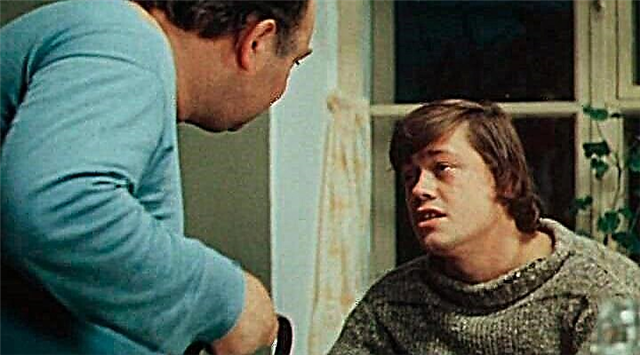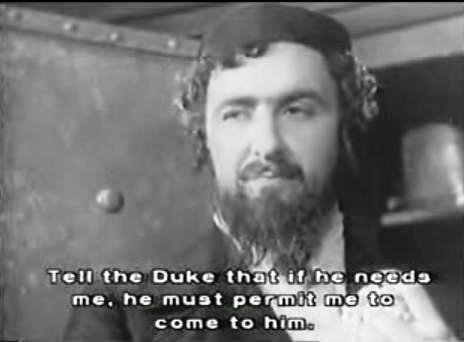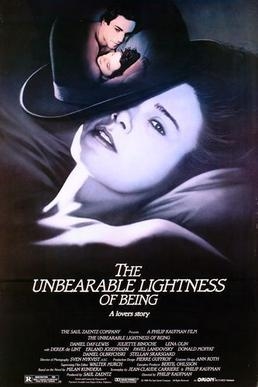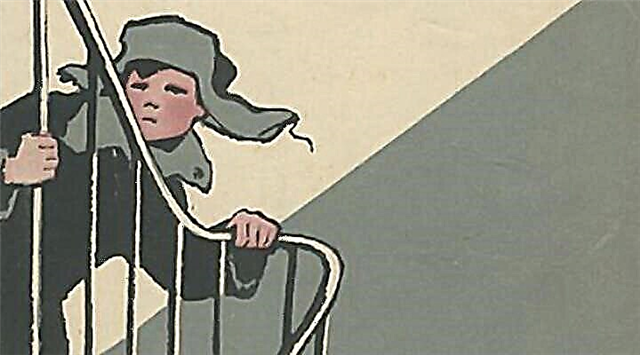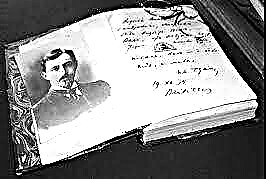The hero of the story, the twenty-eight-year-old Danes of Malta, Laurids Brigge, the last representative of a noble family, is in Paris in complete solitude and on the verge of poverty. His observations now focus on how the outcasts live in Paris: shelters, the smell of chloroform in a hospital for the poor, the rumble of trams, the poor, selling something or trying to prank a passerby for nothing - people lose in humiliating poverty for everyone individuality, do not live their own lives and do not die “by their own death”. The whole experience of the spiritual culture of mankind, the wisdom accumulated over centuries, decides Malta, is not able to help a person resist the standardization that is imposed on him by the surrounding reality, because knowledge has been eternally directed mainly at what surrounds a person, but not at himself. The hero believes that for many centuries mankind has operated exclusively with superficial and insignificant knowledge, still remaining a mystery to himself. Anyone who has found the strength to look into the eyes of this bitter truth, in his opinion, should immediately begin to do something to catch up. That's why he sits down to write his notes. His work is an act of spiritual asceticism. Malta himself realizes how overwhelming the task is. The hard way of knowing it should lead to the attainment of a holistic worldview, the only one capable of shedding light on the original meaning of human existence. And death too. Death for a sick Malta is a logical and necessary end to life. Each person should have “his own death,” arising from this life.
Knowing a person, Malta gazes closely at the people faced by his fate, he wants to make out in each person that unique, special, that distinguishes him from others. The inner world of any beggar or cripple is invaluable to Malta and is full of innermost, clear to him meanings and meanings. The desire to comprehend a person, proceeding only from his personality, from the individual and the particular, inevitably leads Malta to a risky closure on himself. Memoirs of childhood, engraved in the memory of the pages of books, lively impressions of Paris - all this is strung on a single subjective core, everything acquires a special personality coloring.
Wanting to maintain its own individuality, Malta dooms itself to loneliness. He perceives the system of objective connections into which every person is inevitably included as a “mask”, dictating his own gestures and words, and, therefore, subjugating the living “I” to himself. Even love, says Malta, limits the true freedom of man. For, as a rule, even she is not free from the passion of possession, the desire to subjugate the life of another. And then love, as it were, encompasses the existence of the one they love in a certain framework, from the expectations and hopes of those who love, the conditions of the game, a certain pattern of behavior of loved ones, are added. That’s why the parable about the Prodigal son, who left home because he didn’t want to be loved, didn’t want to settle for only one fate option, was so important for Malta that it would be made up of the expectations and hopes of those close to him, depriving him of the right to vote his own “I”. In wandering around the world, the Prodigal son hopes to find such love that would not limit the freedom of another, would not be reduced to the thirst to possess and dictate. At one time, it seems to him that he finds her in love for God. But this solution to the problem is illusory.
In the general context of the novel, this parable is opposed by stories of “great lovers” - Gaspar Stump, Marianne Alcoforado, relative and beloved Malta Abelone. Here, love is not speculative, but living, capable of self-denial, not restricting a person’s being, but only shining through his object with meek rays that reveal his beloved to himself. However, Malta itself does not find the inner strength for such a feeling.
Trying, on the one hand, to shut himself off from people, Malta is at the same time full of passionate, greedy interest in them and, more important for him, compassion. He cannot become self-enclosed, people around him seem to appeal to his participation, they rivet his "learned to see gaze" to themselves. Therefore, Malta recalls the Floberian Julian the Strangers as an ideal to which one should strive. For him, such self-denial is natural; it is just a love of one's neighbor raised to the highest degree. But Malta does not find the strength for such love. He is full of participation to those people who surround him and who are outcasts, but he is a stranger among them, with thoughts in an old noble estate in Denmark, where he spent his childhood, people invade his consciousness uninvited, and this only gives rise to one thing - fear. Malta’s fear is existential in many respects, it’s not a fear of something specific, but fear of being in general, stemming from the inability to understand the world and master, transform individual moments into a complete picture. Notes begun solely for such a good purpose eventually crumble, the plan is not embodied in the "big book", observations remain fragmentary, diary, fragmentary - in a word, just litters, notes.
It is no accident that the theme of imposture arises in the novel. Taking up the pen for a higher purpose, Malta is not able to fulfill the plan, he is powerless to connect his life with the whole human race, with his own family, and finally, just with History; he closes more and more in the world of dreams and memories, and now the past completely subjugates his consciousness, the memory of the past leads him with a hasty nerve pen, And there are no more patterns, no higher values, the world is just a string of uninvited paintings and images intruding into consciousness , interconnected, fragmented, contradictory. Combining these fragments into a single canvas, learning not only to see the details, but to develop your own special outlook on things, give it wholeness, realize your place in an endless series of generations - this is a task whose importance is perfectly understood by Malta Laurids Brigge, but which turns out to be impossible for him . And this is the reason for the painful inner discord. However, the general tone of the notes is not limited to the pathos of the tragic narrative of spiritual decline, of the failure of the artist, of the original horror of the existence of death. The task here is different than just trying to convey all the bitterness of a separate human destiny. What Malta did not manage to reveal to the reader - namely, to make an integral work of art from the notes - was brilliantly successful in some specific sketches, in separate episodes, telling about the people whom his wandering life is faced with. Here Malta gains an amazing gift of speech, the true talent of the narrator. Like Ivan Kuzmich from the false novel, Malta is the owner of countless riches - priceless seconds and minutes of life, which he recalls and describes with such pleasure, reaching the heights of true mastery.

